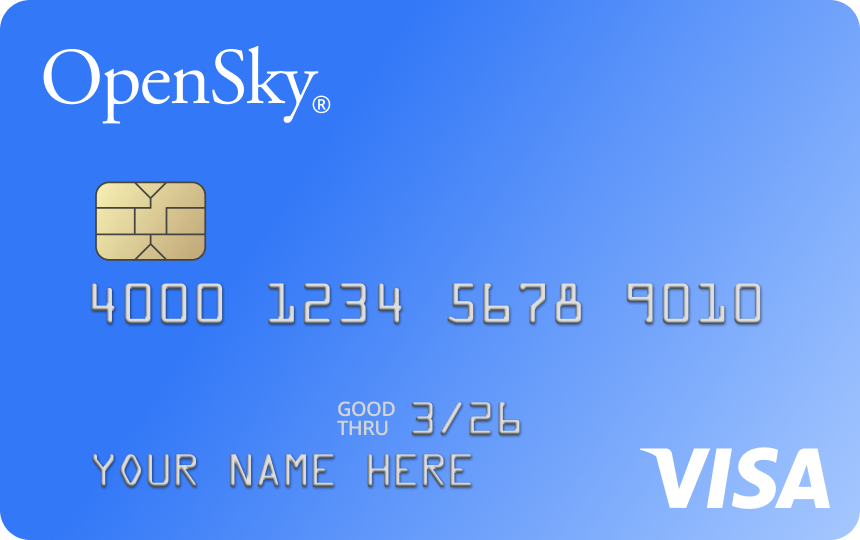OpenSky® Secured Visa® Credit Card
- No credit check to apply. Zero credit risk to apply!
- Looking to build or rebuild your credit? 2/3 of cardholders receive a 48+ point improvement after making 3 on-time payments
- Extend your $200 credit line by getting considered for an unsecured credit line increase after 6 months, no additional deposit required!
- Get free monthly access to your FICO score in our mobile application
- Build your credit history across 3 major credit reporting agencies: Experian, Equifax, and Transunion
- Add to your mobile wallet and make purchases using Apple Pay, Samsung Pay and Google Pay
- Fund your card with a low $200 refundable security deposit to get a $200 credit line
- Apply in less than 5 minutes with our mobile first application
- Choose the due date that fits your schedule with flexible payment dates
- Join over 1.2 million cardholders who’ve used OpenSky to build their credit
Card Details +





